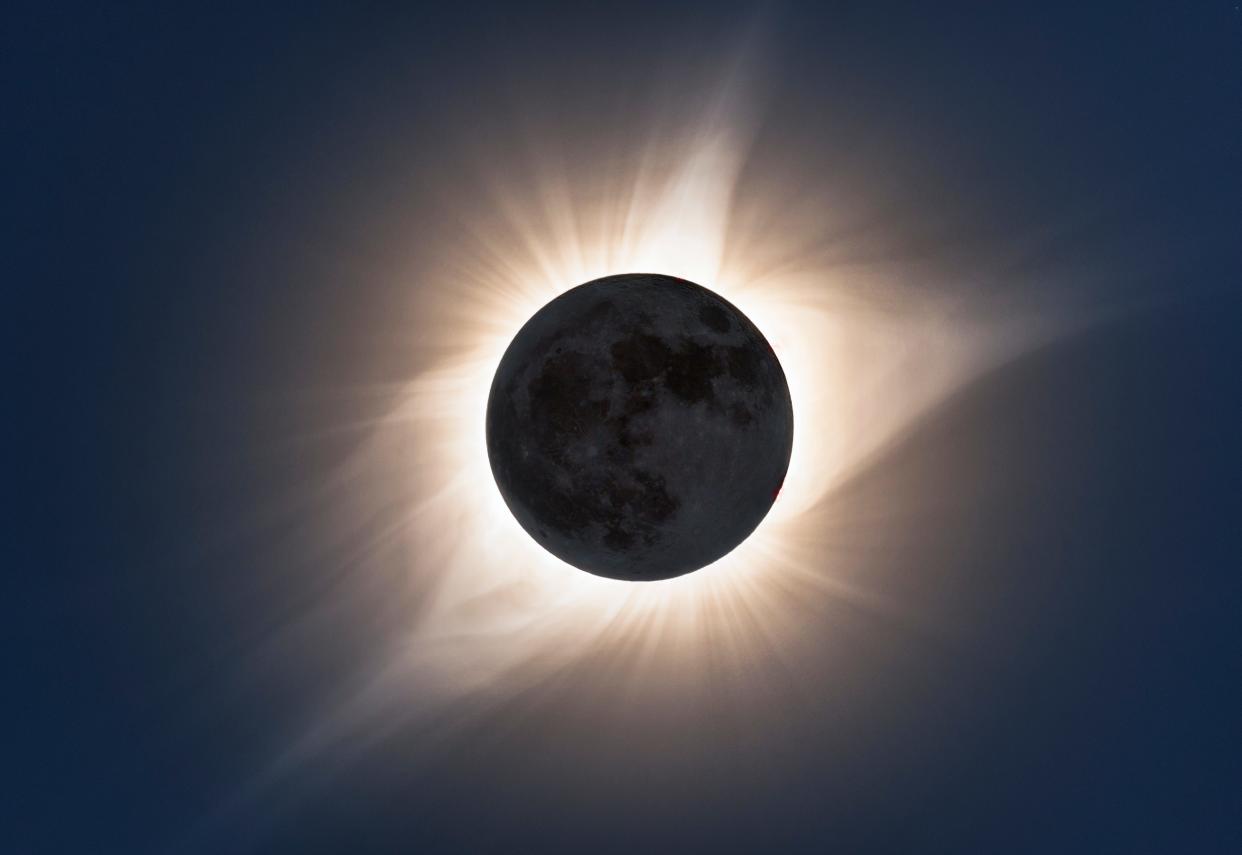A group of NY inmates are so desperate to see the upcoming solar eclipse that they're suing to witness the phenomenon

Inmates at a NY prison are suing the state corrections department to view the April 8 solar eclipse.
The lawsuit says the upcoming eclipse holds religious significance to the inmates.
All state inmates will be ordered to return to their housing units at 2 p.m. on the day of the eclipse.
A rare solar eclipse will soon cross the United States — and six inmates at a New York prison are so desperate to witness the phenomenon that they're suing the state corrections department over it.
The lawsuit, filed last week in a New York federal court, argues that the upcoming April 8 eclipse holds religious significance to the inmates and that they will "be denied their statutory and constitutional rights to practice their religions" if they're not able to view the celestial event.
"This historic eclipse carries enormous religious significance for many, and our clients are simply asking the state to respect their constitutional right to observe it," an attorney representing the inmates, Sharon Steinerman, a senior associate at the law firm Alston & Bird, told Business Insider on Tuesday.
The inmates who brought the lawsuit against the state Department of Corrections and Community Supervision are all incarcerated at the Woodbourne Correctional Facility in Sullivan County and have diverse religious beliefs, according to the complaint. They include an atheist, a Baptist, a Seventh Day Adventist, and followers of Islam and Santeria.
"The April 8, 2024 solar eclipse is similarly expected to be a time for Christians, Santerians, Muslims, and Atheists — to name a few examples — to gather as the world goes dark for a few minutes in the middle of the day," the lawsuit says, noting that the next total solar eclipse isn't expected to be visible in the US until 2044.
The six inmates "have each expressed a sincerely held religious belief that April's solar eclipse is a religious event that they must witness and reflect on to observe their faiths," states the lawsuit.
The lawsuit argues that the corrections department's decision to lock down its prisons statewide on April 8 "illegally prohibits" the group of inmates from observing the solar eclipse.
23 state prisons will be in the path of totality during the eclipse
Thomas Mailey, a spokesman for the Department of Corrections and Community Supervision, told BI that the department does not comment on pending litigation, but said that the agency takes all requests for religious accommodations under consideration.
"Religious requests related to viewing the eclipse are currently under review," Mailey said.
Under a memo issued by the corrections department acting commissioner last month, all state prisons will operate on a holiday schedule on the day of the solar eclipse and all inmates will be returned to their housing units beginning at 2 p.m. until dinner time.
The total solar eclipse is expected to be seen in parts of New York beginning at 3:15 p.m.
Due to an expected surge of people in the area during the eclipse, the corrections department will suspend visitation at facilities most impacted on April 8 and end visitation at 2 p.m. at the rest of the prisons.
Twenty-three state prisons will be in the path of totality during the eclipse and will experience total darkness for roughly up to three minutes when the moon blocks the sun, according to the corrections department. Though Woodbourne Correctional Facility is not included on that list, an interactive map by NASA shows that the prison will be impacted by the solar eclipse.
Inmates and staff at the 23 prisons listed by the corrections department will be provided solar eclipse safety glasses "in the event they will be able to view the eclipse from their assigned work location or housing units," Mailey said.
No inmates will be allowed outside to watch the solar eclipse, according to Mailey.
The lawsuit says that the atheist plaintiff was granted a special request to view the solar eclipse, but that was before the lockdown rules were put in place. Four other plaintiffs had their requests denied, according to the lawsuit.
Read the original article on Business Insider


